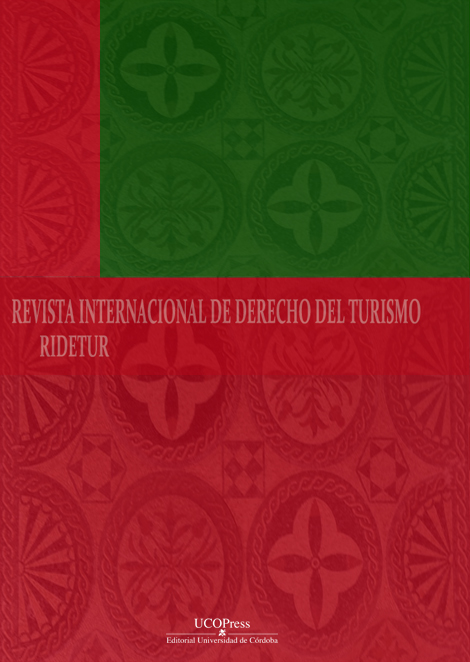THE TOURIST 3.0 OR ADPROSUMER: A NEW CHALLENGE FOR LAW AND ECONOMY
Main Article Content
Abstract
When planning and managing a trip by smartphone, tourist 3.0 must face various risks and problems that may affect their protection as a consumer and tourist user (treatment of personal data, ignorance of rules on consumption and administrative nature, ignorance of complaint mechanisms, ways of acting before comments and inappropriate online assessments, absence of legal regulation of collaborative consumption, etc.). Such difficulties will be evidenced to promote a reflection - and desirable adaptation – of our laws before the arrival - and increase - of digital tourism; and, in a correlative way, generate a greater - and necessary - diffusion, education and information by public authorities, in protection of a "vulnerable tourist". Only in this way will confidence in the digital environment be improved and, consequently, E-Tourism will be encouraged. In addition, the tourist sector, with the arrival of tourist 3.0, will have to face four fundamental axes: Cloud, Mobile, Internet of Things and Social.
Downloads
Article Details
Política propuesta para revistas que ofrecen acceso abierto. Aquellos autores/as que tengan publicaciones con esta revista, aceptan los términos siguientes:
a.Los autores/as conservarán sus derechos de autor y garantizarán a la revista el derecho de primera publicación de su obra, el cual estará simultáneamente sujeto a la Licencia de reconocimiento de Creative Commons que permite a terceros compartir la obra siempre que se indique su autor y su primera publicación esta revista.
b.Los autores/as podrán adoptar otros acuerdos de licencia no exclusiva de distribución de la versión de la obra publicada (p. ej.: depositarla en un archivo telemático institucional o publicarla en un volumen monográfico) siempre que se indique la publicación inicial en esta revista.
c.Se permite y recomienda a los autores/as difundir su obra a través de Internet (p. ej.: en archivos telemáticos institucionales o en su página web) antes y durante el proceso de envío, lo cual puede producir intercambios interesantes y aumentar las citas de la obra publicada.
